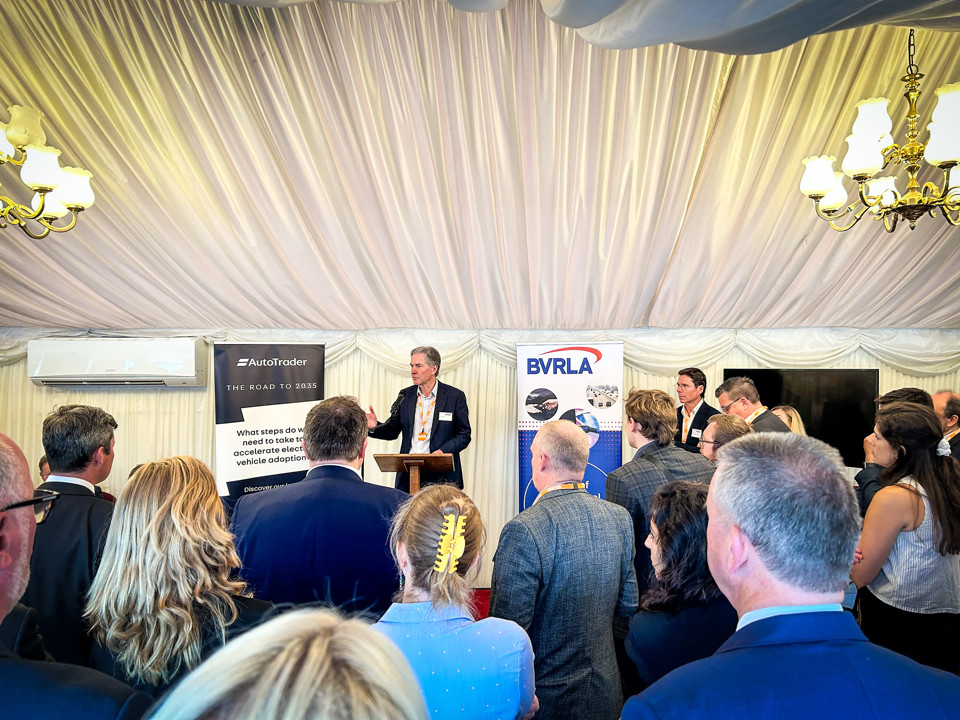Government intervention is needed to avoid further volatility in used electric vehicle (EV) values, according to the BVRLA.
It says falling values are damaging confidence in the transition and making new EVs more expensive.
The warning came as part of the association’s annual Parliamentary Reception, where it launched the #happyEVafter campaign. In conjunction with Auto Trader, EVA England, and the NFDA, the campaign outlines where policy changes, targeted incentives, and collaboration between government and industry can create a smoother transition that benefits all drivers.
BVRLA Chief Executive, Gerry Keaney, said: “Vehicles start depreciating as soon as they are sold, particularly over the first few years. This is a fact of life and the cost of this loss in value is absorbed into the vehicle finance agreements that are responsible for around 90% of all new car and van sales.
“What is unprecedented and unsustainable is the scale of depreciation we are now seeing. Over the last two years, used EV values have dropped by 50% and are set to fall even further.
“These losses are being swallowed by the leasing companies and fleet operators that have championed the switch to zero-emission vehicles. They cannot continue to bear this burden alone. The Government needs to intervene now to help bring confidence and stability back to this vital part of the automotive ecosystem. Together, we can deliver a ‘Happy EV After’.”
Used EV values have fallen 50% over the last 24 months. The BVRLA is warning that the sector risks seeing further drops if no action is taken.
These falling values create a short-term benefit to used EV buyers but come at a huge cost to the finance companies and dealers that own and sell these rapidly depreciating assets.
As a result, confidence in how well electric vehicles will perform in the used market is waning, putting pressure on finance companies to increase the monthly lease rates for new EVs to cover their potential losses.
This negative loop is set to accelerate in the coming years. An ever-increasing wave of second-hand EVs will hit the used market, with insufficient demand to absorb it.
Sue Robinson, chief executive of the National Franchised Dealers Association (NFDA) commented: “Sustained significant declines in used EV values over time could cause consumers to worry about depreciation whilst dealers who have invested significantly in transitioning to net zero could face substantial financial losses.
“The forthcoming Autumn Budget presents a crucial opportunity for the Labour government to show its support for the sector. Implementing the right policies can help ensure the industry thrives in the years ahead during the transition to electric.”
There are already signs that this used EV supply-demand imbalance is hampering demand for new EVs. By 2027, Oxford Economics believes that the collapse in used EV values will have resulted in nearly 300,000 fewer new electric cars being sold.
Poor residual values and the resulting inflationary pressure on new EV lease rates has already seen 220,000 lost EV registrations, leaving millions of tonnes of CO2 in the road transport network.
The #happyEVafter campaign is built on addressing three critical points: boosting confidence, balancing cost of ownership, and expanding accessibility.
The BVRLA is launching a full report exploring the used EV market next week (Tuesday 17 September). Compiled by Oxford Economics, it will outline the scale and severity of the challenges currently being experienced by the used EV market and all those who operate within it.





















martinwinlow - 13/09/2024 17:50
Sorry, but this is ridiculous. The *only* reason for the recent drop in EV sales is the price war that Tesla and China have been waging that has brought about a completely obvious 'adjustment' in in used *and new* prices, alike. On top of this there has been huge expansion in the number of different models of EVs that are now available Vs 2 years ago and to demand HMG intervene to prop up prices (if that's what is being asked - no-one makes it clear) is just really very silly. Meanwhile to say that demand for EVs is waning is complete tripe - do these people *seriously* believe everything they read in mass and social media?